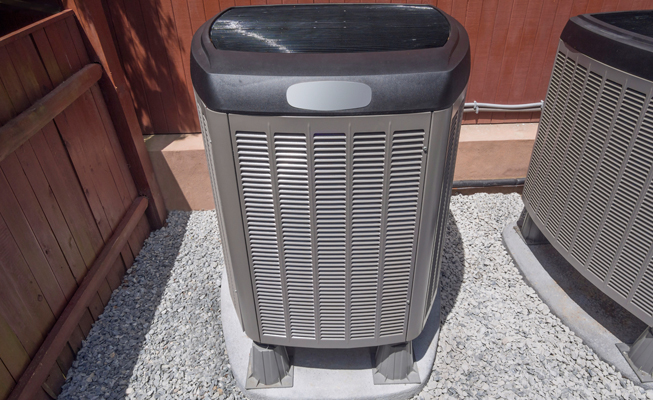HVAC System: Top 5 Causes of HVAC Failure
HVAC System Tips for Optimal Efficiency
Your home’s HVAC system is composed of several mechanical components working together, designed to keep your home safe and comfortable. It provides adequate ventilation, clean air and regulates temperature throughout your living space.
When each component functions properly you barely notice, but when something is wrong, everyone knows.
When your system fails you are aware of the discomfort because of seasonal temperatures. However, malfunctioning heating and air conditioning can also lower indoor air quality, affect health and raise energy costs unnecessarily. If your system fails, check these five things before you call an HVAC professional.
The Top 5 Causes of HVAC Failure
Check the Electrical Breaker
If the HVAC system will not work at all, go to the electrical panel and check for a tripped breaker. The panel door depicts which breaker supplies the HVAC system—usually, more than one breaker supplies the system. If the breaker is tripped, it is in a neutral position.
If you wiggle it gently, it will move both right and left. Turn the breaker off and then turn it to the “on” position. In both the on and off position the breaker will be firm, with no more wiggle.
If this is the only problem, the breaker will restore power to your system and it will return to normal use. The breaker might have tripped for a number of reasons. If the breaker trips again, contact a professional electrician to investigate the problem. It is no longer a DIY project.
Dirty Air Filters
The easiest DIY preventative maintenance task you can do for your system is to change the air filter. The filter will be positioned for easy accessibility and collects dust and pollutants before the air is heated or cooled. This keeps dust out of vital mechanical components and traps them before they can be redistributed.
An air filter will continue to collect pollutants even when it is dirty; however, the dust and pollen build up over time and slows the airflow, which and makes the blower motor work much harder. Plan on changing your filter at least every 3 months, but be aware that your home may require more frequent changes.
Factors such as living on a dusty road, near construction or having several pets might necessitate frequent filter changes.
Filters are readily available at hardware and DIY centers. Air filters come in a variety of materials, including washable filters for reuse. Explore your options.
Impeded Air Flow
The duct system transports clean conditioned air throughout the home, unless something is blocking the airflow. Occasionally a homeowner will not notice a room vent and place furniture or accessories on the vent, blocking airflow. Also, check the dampers on the room vents to ensure they are in the open position.
Your ductwork system may also have dampers in the main supply lines which regulate airflow. These dampers are designed to balance the flow of air for seasonal changes. If dampers are not balanced properly, you will experience uneven heat or AC in some rooms, while proper dampening will heat and cool rooms evenly. Uneven heating and cooling adds stress to your HVAC system and shortens system life.
Check the Thermostat
Thermostats are equivalent to an on/off switch, determined by air temperature in a room, typically the most used room in the house. If the switch is not functioning properly the entire system will not work properly.
Fortunately, replacing a thermostat is a simple and relatively inexpensive fix. Unfortunately, many homeowners are not prepared to diagnosis the problem.
If you suspect the thermostat might be the culprit, consult your professional for an inspection. In many cases, a new programmable or smart thermostat will help lower your utility bills and increase your comfort.
A Refrigerant Leak
When the outside temperature rises and your AC “can’t keep up,” it is definitely time to call your HVAC professional and have the refrigerant level checked. Your AC unit requires a gas coolant in a contained circuit and any crack or flaw in the circuit will allow the gas to escape.
Often the refrigerant escapes gradually resulting in decreasing performance and leading to a failure to cool. The decrease in performance is serious, as it causes the AC components to work extremely hard and leads to complete failure.
The HVAC professional might be able to find the source of the leak and replace the refrigerant. Replacing the refrigerant often makes an immediate, noticeable change.
Want more information about HVAC System Tips for Optimal Efficiency
If you are considering to better your Air Conditioning Efficiency, call us at 281-238-9292 or contact us via email.
Connect with All Cool AC and Heating on Facebook.
